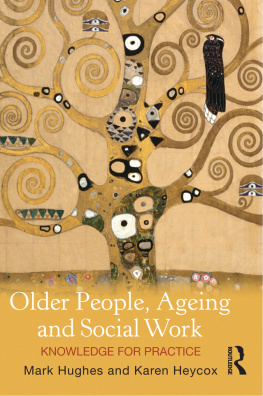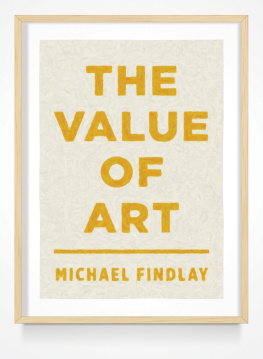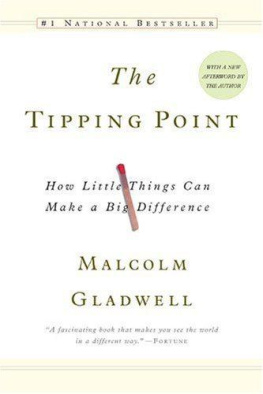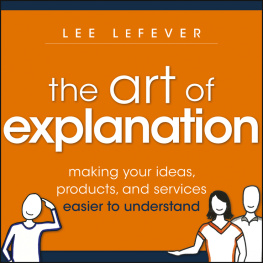First published as a Paperback Original in Great Britain in 2008 by
Atlantic Books,
an imprint of Grove Atlantic, Inc.
Copyright James Harkin 2008
The moral right of James Harkin to be identified as the author of this
work has been asserted in accordance with the Copyright, Designs and
Patents Act of 1988.
All rights reserved. No part of this publication may be reproduced,
stored in a retrieval system, or transmitted in any form or by any
means, electronic, mechanical, photocopying, recording, or otherwise,
without the prior permission of both the copyright owner and the
above publisher of this book.
Every effort has been made to trace or contact all copyright-holders.
The publishers will be pleased to make good any omissions or rectify
any mistakes brought to their attention at the earliest opportunity.
9 8 7 6 5 4 3 2 1
A CIP catalogue record for this book is available from the British
Library.
ISBN 978 1 84354 710 5
Printed in Great Britain
Atlantic Books
An imprint of Grove Atlantic Ltd.
Ormond House
2627 Boswell Street
London WC1N 3JZ
Introduction
What can it mean to be a 'libertarian paternalist', a 'slacktivist' or a 'transhumanist'? How does 'peer-to-peer' surveillance differ from ordinary snooping, and where can one go about finding a 'virtual anthropologist'? What is it like to live in an 'experience economy'? When people murmur knowingly about something called 'the wisdom of crowds', what are they talking about? Is there really a 'tipping point' in every field of human endeavour, and, if so, where does it come from and how does it work?
Assaulted by a battery of new ideas, buzzwords and neologisms, it is easy to feel left out. In the last few years, after several decades during which grand, overarching political ideologies were overthrown and ideas of any stripe were treated with suspicion, an esoteric new vocabulary of ideas bobbed back to the surface of social life and began to appear on everyone's lips. These new kinds of ideas came in different shapes and sizes. There were ideas as labels to help us describe and understand our changing world and the people in it; ideas as innovations to help us to change things; ideas to help turn businesses around and make money; most of all, there were ideas to make us, our organizations and our politicians more novel and more exciting. All of a sudden, it seemed, ideas big, weighty, serious-sounding ideas were the most fashionable currency in town, and everyone seemed to want one of their own.
One catalyst for this, in the world of politics at least, was a broad shifting of the tectonic plates and the sense of an era coming to an end. In North America and Europe, incumbent governments George Bush's administration in North America, Tony Blair's New Labour project in Britain, Jacques Chirac's Presidency of France began to look flailing and unwieldy, as if they were about to give way to something else. If the new generation of political contenders not only David Cameron in the UK, but Nicolas Sarkozy in France and Barack Obama in the United States did nothing else, they added a little intellectual Viagra back into political debate. They also did something to resuscitate the principle that ideas abstractions which hover over and shape debates about what governments do matter after all. Without ideas, everything is random: politicians are mere opportunists, coming up with arbitrary policy wheezes that bear no relationship to one another; policy prescriptions are nothing but focus groups writ large; delivery, polish and execution are everything. Thankfully, we have lost our patience with all that. The pressing questions at the beginning of the twenty-first century among them the way that we approach risk and uncertainty, the state of the environment, the make-up of national identity, the nature and meaning of political terrorism, the progress of globalization and the politics of human rights are very different from those in the past, but just as prone to riddle and wrong-headedness. They demand new ideas, bold concepts and fresh thinking.
But where would that thinking come from? Not from academic philosophers, for sure. Anglo-Saxon philosophers, steeped in the 'ordinary language' school of analytical philosophy, have long been suspicious of ideas of any stripe, which they saw as no more than an unwarranted fit of continental European enthusiasm. Their job, as they saw it, was to take ideas which already happened to exist justice, liberty, etc. and then refine and sharpen them into something which made sense. For these kinds of philosophers, big ideas were only raw materials, waiting to be burnished and buffed up by themselves into something approaching internal coherence. They were not much interested in thinking up ideas themselves. Ask them for one, and they were likely to reply that it was not their job.
Much better placed to think up big ideas were the continental European philosophers, whose initial enchantment with ideas about society and culture was as intense as their irritation with the pedantry of Anglo-Saxon philosophy. It was they, after all, who revelled in the grand ideas of Hegel, Marx and Freud and made them their own. No sooner had they inculcated us in their sweeping intellectual narratives, however, than they promptly spat them out. In 1984, for example, the French philosopher and former Marxist Jean-Franois Lyotard argued that grand ideologies or 'metanarratives' if those were intended to order and explain all our knowledge and experience had outlived their usefulness. What we were left with was 'postmodernism' Lyotard defined this as 'an incredulity towards metanarratives' which was sceptical of anything which purported to explain too much. Like many other left-leaning intellectuals during the last two decades, Lyotard spent much of his time feasting on the rotting carcass of twentieth-century ideologies like Marxism and socialism. These 'Post-it' intellectuals were largely successful in their mission to kick ideologies when they were on the way down, but their mission was almost wholly destructive. Very soon, however, we tired of verbose, dissembling intellectuals who wanted to tell us only what could not be understood. Anyone who talks too loosely about 'postmodernism' or 'post-structuralism' is nowadays themselves treated with a healthy dose of scepticism.
THE NEW LANDSCAPE OF IDEAS
Anyone looking to politicians or to university-based ideologues to stimulate new thinking, however, was looking in the wrong place. Long before Cameron, Obama and Sarkozy had become regular fixtures on our television sets, the media had detected an appetite for big ideas and, for those who cared to look, there was plenty of interest in new ideas around. The success of idea books like The Tipping Point and Freakonomics and a huge glut of books about happiness all signified to cultural commissars a thirst for good ideas clearly expressed. It became fashionable to establish an 'ideas factory' or 'ideas laboratory' within organizations, as if it were somehow possible to punch out ideas on an industrial scale. This thirst for new ideas spread to newspapers and magazines. The New Yorker, buoyed up by staff writers like Malcolm Gladwell, James Surowiecki and Louis Menand, developed an enviable reputation for helping to explain complex ideas to a lay audience. In the year 2000, the












